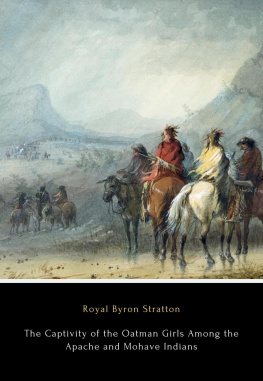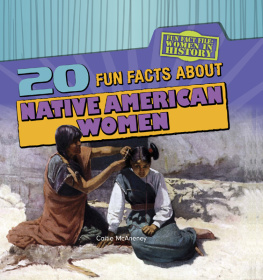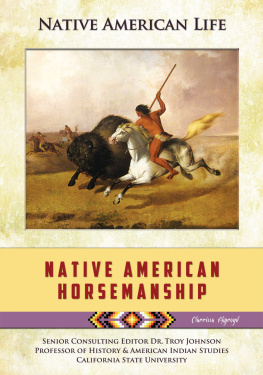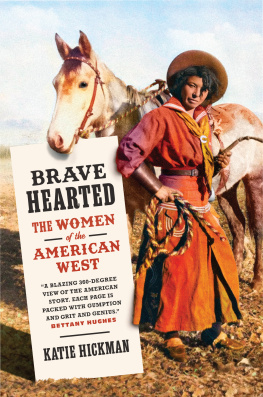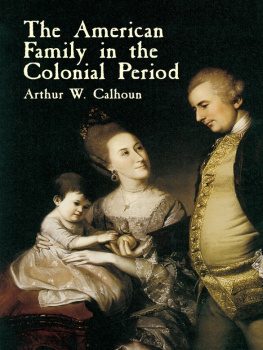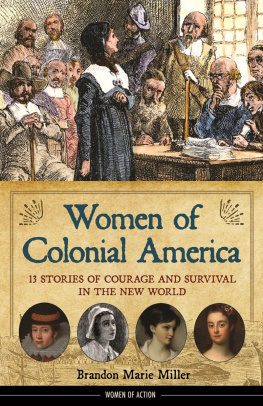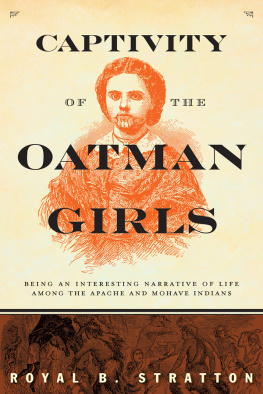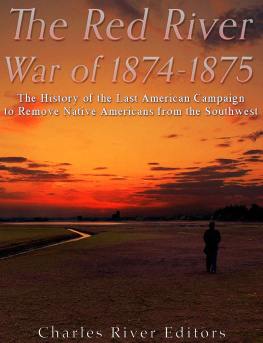The Captivity of the Oatman Girls Among the Apache and Mohave Indians
Royal Byron Stratton
Published by The Old Pioneer Press, 2021.
Copyright
T he Captivity of the Oatman Girls Among the Apache and Mohave Indians by Royal Byron Stratton. First published in 1935.
Revised edition published by The Old Pioneer Press, 2021.
T he 9th of August 1850 was a lovely day. The sun had looked upon the beautiful plains surrounding Independence, Missouri, with a full unclouded face, for thirteen hours of that day; when, standing about four miles south of westward from the throbbing city of Independence, alive with the influx and efflux of emigrant men and women, the reader, could he have occupied that stand, might have seen, about one-half hour before sunset, an emigrant train slowly approaching him from the city. This train consisted of about twenty wagons; a band of emigrant cattle; and about fifty souls; men, women and children.
Attended by the music of lowing cattle, and the chatter of happy children, it was slowly traversing a few miles, at this late hour of the day, to seek a place of sufficient seclusion to enable them to hold the first and preparatory nights camp, away from the bustle and confusion of the town. Just as the sun was gladdening the clear west and throwing its golden farewells upon the innumerable peaks that stretched into a forest of mountains gradually rising until it seemed to lean against the sun-clad shoulders of the Rocky Rangeimparadising the whole plain and mountain country in its radiant embrace, the shrill horn of the leader and captain suddenly pealed through the moving village, a circle was formed, and the heads of the several families were in presence of the commander, waiting orders for the camping arrangements for the night.
Soon, teams were detached from the wagons, and, with the cattle (being driven for commencement in a new country) were turned forth upon the grass. Rich and abundant pasturage was stretching from the place of their halt westward, seemingly until it bordered against the foothills that peopled the Indian Territory in the distance.
Among the fifty souls that composed that emigrant band, some were total strangers. Independence had been selected as the gathering place of all who should heed a call that had been published and circulated for months, beating up for volunteers to an emigrant company about seeking a home in the southwest. It was intended, as the object and destination of this company, to establish an American colony near to the mouth of the Gulf of California. Inducements had been held out, that if the region lying about the juncture of the Colorado and Gila rivers could thus be colonized, every facility should be guaranteed the colonists for making to themselves a comfortable and luxuriant home.
After a frugal meal, served throughout the various divisions of the camp, the evening of the 9th was spent in perfecting regulations for the long and dangerous trip, and in the forming of acquaintance, and the interchange of salutations and gratulations. Little groups, now larger and now smaller, by the constant moving to and fro of members of the camp, had chatted the evening up to a seasonable bedtime. Then, at the call of the crier, all were collected around one campfire, for the observance of public worship, which was conducted by a clergyman present. Into that hour of earnest worship were crowded memories of home and friends, now forever abandoned for a home in the far off Southwest.
There flowed and mingled the tear of regret and of hopethere, and then, rose the earnest prayer for Providential guidance; and, at that hour there swelled out upon the soft, clear air of as lovely an evening as ever threw its star-lit curtain upon hill and vale, the song of praise and the shout of triumph; not alone in the prospect of a home by the Colorado of the Southbut of glad exultation in the prospect of a home hard by the River of Life, which rose to view as the final termination of the journeyings and toil incident to mortalitys pilgrimage. Now, the hush of sleeps wonted hour has stolen slowly over the entire encampment, and nothing without indicates remaining life, save the occasional growl of the ever-faithful watchdog, or the outburst of some infant member of that villa-camp, whose strength had been over-tasked by the hurry and bustle of the previous day. Reader: we now wish you to go with us into that camp and receive an introduction to an interesting family; consisting of father, mother, and seven children; the oldest of this juvenile group, a girl of sixteen, the youngest a bright little boy of one year. Silence is here, but to that household sleep has no welcome. The giant undertaking upon which they are now fairly launched is so freighted with interest to themselves and their little domestic kingdom, as to leave no hour during the long night for the senses to yield to the soft dominion of sleep.
Besides, this journey now before them has been preceded by lesser ones, and these had been so frequent and of such trivial result as that vanity seemed written upon all the deep and checkered past, with its world of toil and journeyings. In a subdued whisper, but with speaking countenances and sparkling eyes, the parents are dwelling upon this many-colored bygone.
Mr. Oatman is a medium sized man, about five feet in height, black hair, with a round face, and yet in the very prime of life. Forty-one winters had scarcely been able to plough the first furrow of age upon his manly cheek. Vigorous, healthy, and of a jovial turn of mind, disposed to look only upon the bright side of everything, he was happy; of a sanguine temperament, he was given to but little fear, and seemed to be ever drinking from the fresh fountain of living buoyant hope. From his boyhood he had been of a restless, roving disposition, fond of novelty, and anxious that nothing within all the circuit of habitable earth should be left out of the field of his ever curious and prying vision. He had been favored with rare educational advantages during his boyhood, in western New York. These advantages he had improved with a promising vigilance, until about nineteen years of age. He then became anxious to see and try his fortune in the then faraway West. The thought of emigrating had not been long cogitated by his quick and ready mind, ere he came to a firm resolution to plant his feet upon one of the wild prairies of Illinois.
He was now of age, and his father and motherLyman and Lucy Oatmanhad spent scarcely one year keeping hotel in Layharp, Ill., ere they were joined by their son Royse. Soon after going to Illinois, Royse was joined in marriage to Miss Mary Ann Sperry, of Layharp. Miss Sperry was an intelligent girl of about eighteen, and by nature, and educational advantages, abundantly qualified to make her husband happy, and his home an attraction. She was sedate, confiding, and affectionate, and in social accomplishments placed, by her peculiar advantages, above most of those around her. From childhood she had been the pride of fond and wealthy parents; and it was their boast that she had never merited a rebuke for any wrong. The first two years of this happy couple were spent on a farm near Layharp. During this time, some little means had been accumulated by an honest industry and economy, and these means Mr. Oatman collected and with them embarked in mercantile business at Layharp.

